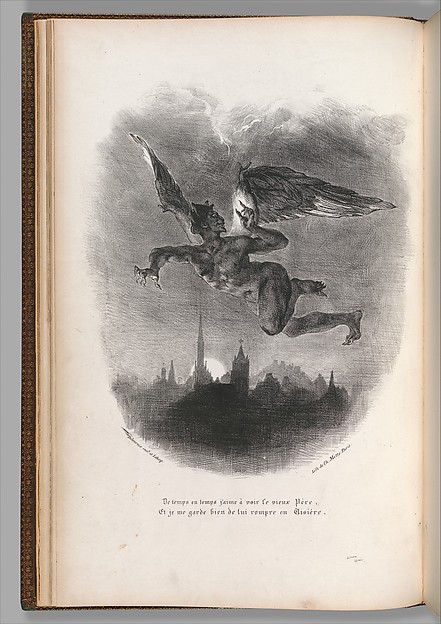The pictures alone are worth myriad words: The School of Athens, Augustus of Prima Porta, Tolkien's Cover of The Hobbit, etc.
Some of them might suggest the radical humility and thinking the best of others represented by Socrates (perhaps ironically) and Plato (certainly poetically), as well as the pride in self and friends represented by Aristotle (proto-scientifically)--so that it is a grievous error to speak of 'Socratic method,' when whatever that is must be seen in the context of the whole tradition of philosophers, writers, and experimenters--of political and educational institutions, too, to give Augustus and Tolkien their due--of which each 'great man' is a part. Perhaps with a cat on his shoulder.
This is what I think about when I play laser pointer with my cats: how we chase the light, not knowing what it is, and it always escapes us, of course, and we cannot even conceive of what it would mean to catch it, and yet there is meaning in the delight of the pursuit. What is light?
A quote I didn't fit into my review of Maps of Meaning, but a stellar one:
A well-designed experiment allows for the testing of ideas, when it is undertaken properly. However, ideas to test must be generated--a truism often overlooked in the course of modern academic education. (402)
This is part of Peterson's revaluation of Jung, a project I continually like to hold up alongside Olsen's dissemination of Tolkien, because I think they have a great deal in common, and because our project stands to gain much from their efforts. As science emerged from alchemy, in Peterson's account, so it seems that Olsen argues poetry and mythopoeia can flourish in a scientific age. For all Tolkien's dislike of allegory, his genius was in many respects a medieval one, revitalizing the culture from its metaphors--scientists, like Bagginses, are not all so prosy as they like to believe.
If, as Peterson argues, we are in the midst of another Gutenberg revolution for the spoken word, then what would the next one be? From listening, might we recover the art which underlies speech and writing alike: might we next simply think? This is something Alex and I touched upon in our discussion of Nausikaa, the possibility of immediate imageistic expression and loving interpretation, along with ideas for what to do next--to survey people about the works which have touched them, to proceed with a deep dive into Final Fantasy VII, to go on with the Harry Potter series, etc. From reading back to listening, something one can do while doing practically anything else, and so now perhaps thinking will be the new low.



